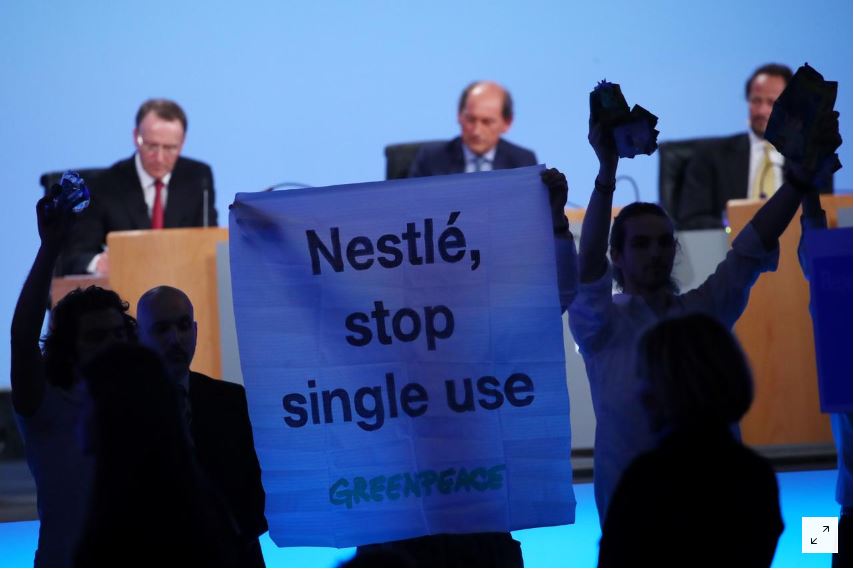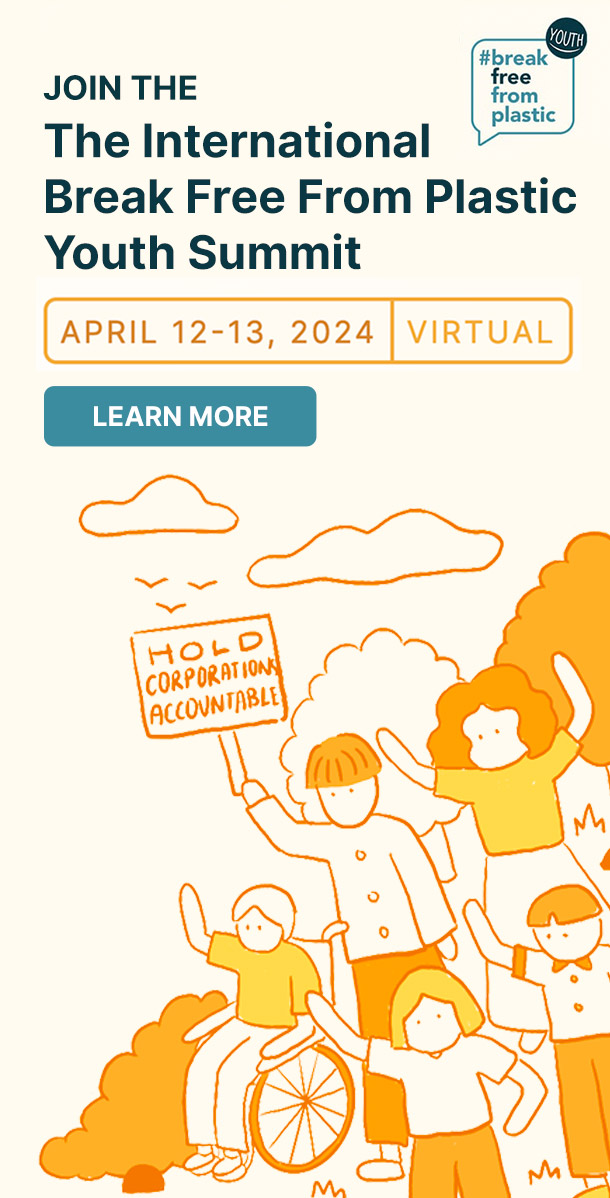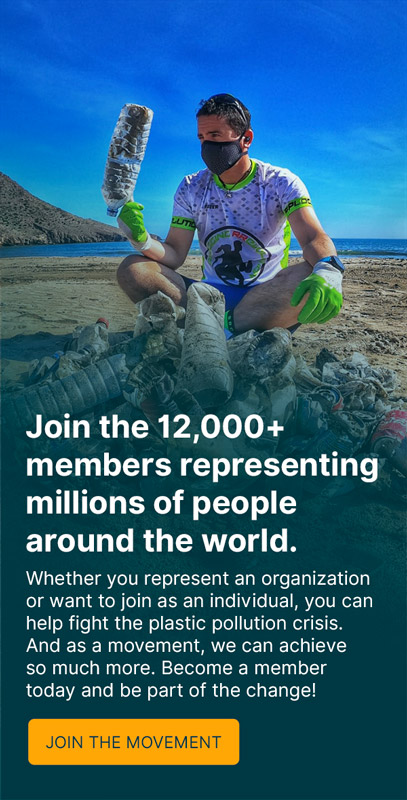LAUSANNE, Switzerland (Reuters) - Environmental group Greenpeace on Thursday accused Nestle of not doing enough to reduce single-use plastics polluting landfills and oceans.
Jennifer Morgan, executive director at Greenpeace International, said the world’s biggest food group should set a target for reducing single-use packaging and invest in alternatives focusing on refill and reuse.
“Nestle is a major contributor to the plastic crisis and environmental problem that we have right now,” Morgan told Reuters on the sidelines of the company’s annual general meeting in Lausanne, where Greenpeace activists intervened shaking banners.
Nestle Chief Executive, Mark Schneider, said he thought focusing exclusively on reusable packaging was wrong. “Why rely on just one lever when you have four or five you can use,” he said, citing the importance of biodegradable packaging and recycling.
Growing concern over environmental issues - from climate change to plastic pollution - has triggered a wave of global student protests, piling pressure on policymakers and business leaders.
Coca-Cola, PepsiCo and Nestle are the world’s biggest producers of plastic waste, according to a report last year from Greenpeace and the Break Free From Plastic movement. It analyzed 187,000 pieces of trash collected in 42 countries.
Duncan Pollard, Nestle head of sustainability, said the company agreed about the need to reduce plastic use. “But we need to make sure the new packaging solutions are safe and that consumers accept them,” he told Reuters, adding it was too early to say plastic use had peaked.
Nestle has said it used 1.7 million tonnes of plastic packaging last year. Greenpeace said that was up 13 percent, but Pollard said Nestle had since changed the way it measured plastic use and the true rise was below 3 percent.
Last month, the European Parliament approved a law banning a wide range of single-use plastic items by 2021.
Nestle has vowed to make 100 percent of its packaging recyclable or reusable by 2025 and push the use of compostable and biodegradable materials polymers.
Greenpeace criticized Nestle’s promises as lacking transparency, clear targets and significant investment.
“Material substitution is a false solution,” Morgan said. “It will just shift the impact to the world’s forests and agricultural lands.”
Pollard said he didn’t share concerns about deforestation and thought the shift to paper would help tackle climate change. Nestle was also working on a new system of water dispensers.
Greenpeace on Wednesday launched a “plastic monster” video showing a fictional “Nestle Chief Plastics Officer” trying to buy a single-use plastic bottle of the company’s Pure Life water from a vending machine and having dead fish and slimy waste explode in his face instead.
The one-minute spot ends with the slogan “Tell Nestle to stop single-use plastic”.
editing by John Stonestreet
Article originally posted in Reuters.




